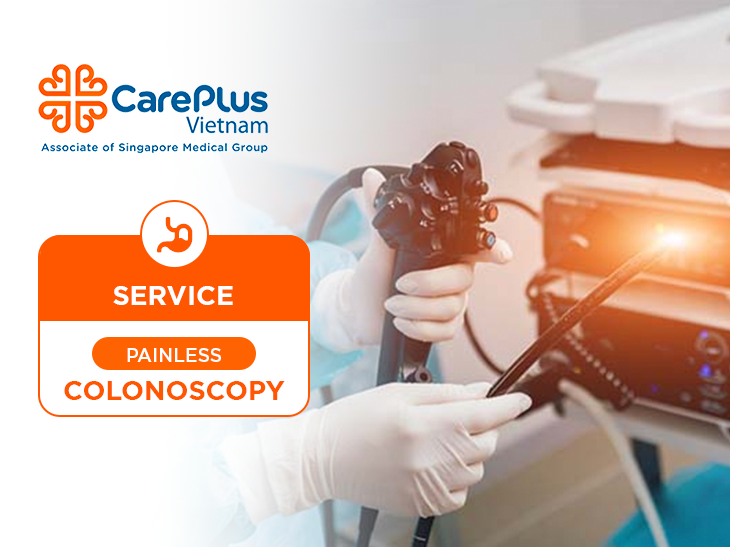Painless Colonoscopy

WHAT IS COLONOSCOPY?
Colonoscopy is a safe procedure that allows for direct observation of the colon (large intestine) mucosa using a flexible tube equipped with a camera inserted through the anus. Through images displayed on the endoscopy machine, doctors can observe, classify the extent of damage, and accurately diagnose conditions. This enables them to determine appropriate treatment methods and directly intervene in any lesions.
Colonoscopy can help doctors detect very small lesions, sometimes just a few millimeters in size, which other methods such as ultrasound, CT scans, MRI, or X-rays may overlook.
WHAT IS PAINLESS COLONOSCOPY?
Painless Colonoscopy is an advanced and modern endoscopic technique, which addresses the shortcomings of traditional endoscopy.
Advantages of painless endoscopy:
Pain-free experience: There is no sensation of pain, reducing anxiety. Patients do not experience discomfort, nausea, or the urge to cough or gag as with conventional endoscopy methods.
Precision: With painless endoscopy, patients remain still, ensuring clear and accurate images, facilitating the endoscopy process.
Safety: Depending on each specific case, the doctor will determine the appropriate dosage of sedative medication for short-term sedation, ensuring safety and not adversely affecting health. Pain-free endoscopy is recommended by the American Gastroenterological Association and endorsed by the Asian Pacific Association of Gastroenterology.
WHO SHOULD UNDERGO COLONOSCOPY?
Colonoscopy is indicated for patients suspected of having issues with the digestive tract (anus, rectum, colon). For each case, the doctor will consider the patient's health status and related issues to determine the need for colonoscopy.
The recommended age for individuals at average risk to begin cancer screening with endoscopy is currently between 35 and 45 years old.
Having close family members (grandparents, parents, siblings) with gastrointestinal diseases such as esophageal cancer, stomach cancer, or colorectal cance, multiple polyps in the digestive tract.
Symptoms such as passing mucus or blood stools (especially if suspected of rectal cancer or colon cancer), unexplained weight loss, changes in bowel habits, anemia.
Abnormal findings on colonoscopy or ultrasound.
Intervention or follow-up treatment is required.
DISEASES DETECTABLE BY COLONOSCOPY SERVICE:
Evaluation of benign conditions in the lower digestive tract such as hemorrhoids, anal fissures, anal prolapse, ulcerative colitis, diverticulosis, irritable bowel syndrome, etc.
Screening for colorectal polyps and follow-up after treatment.
|
NOTES:
|